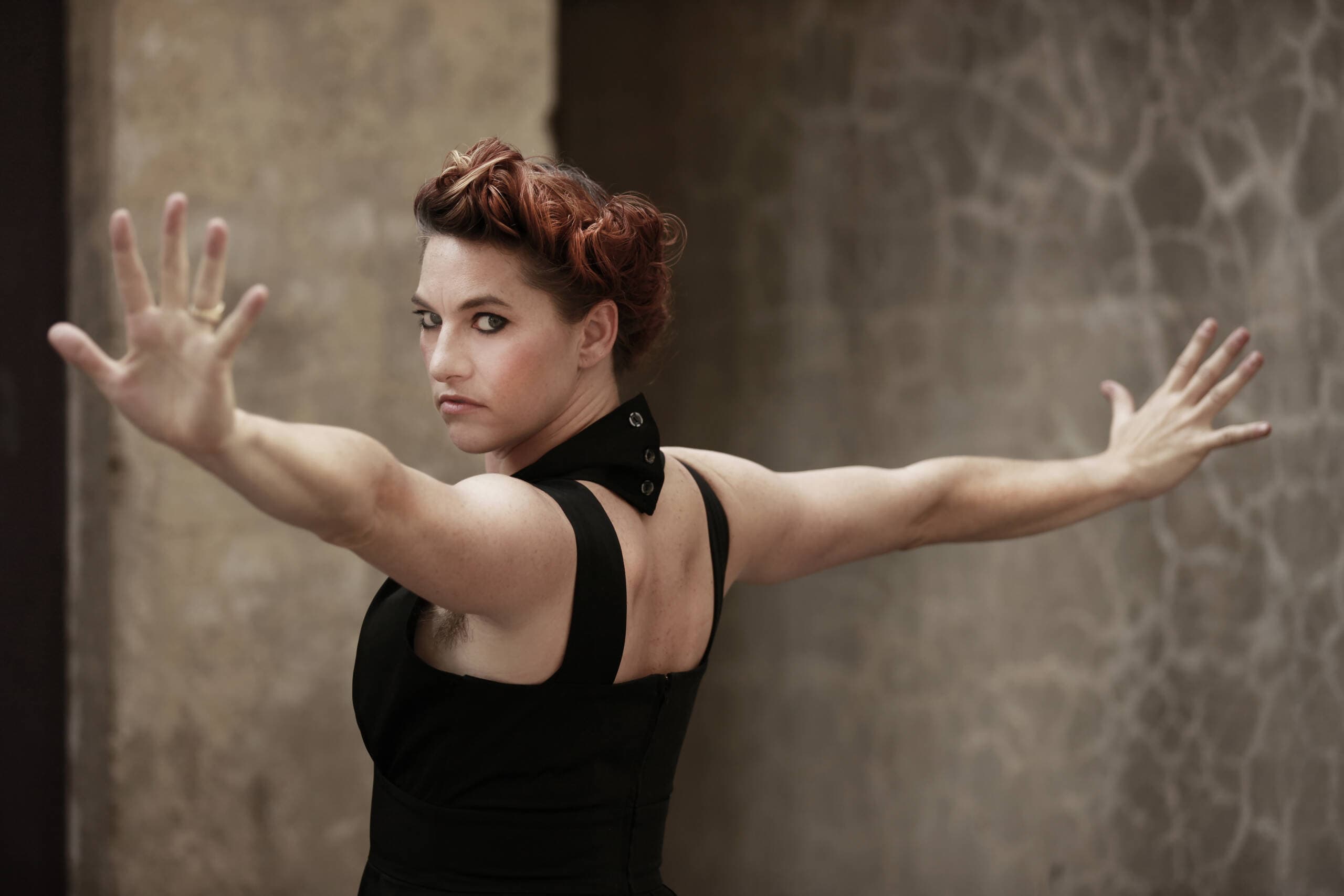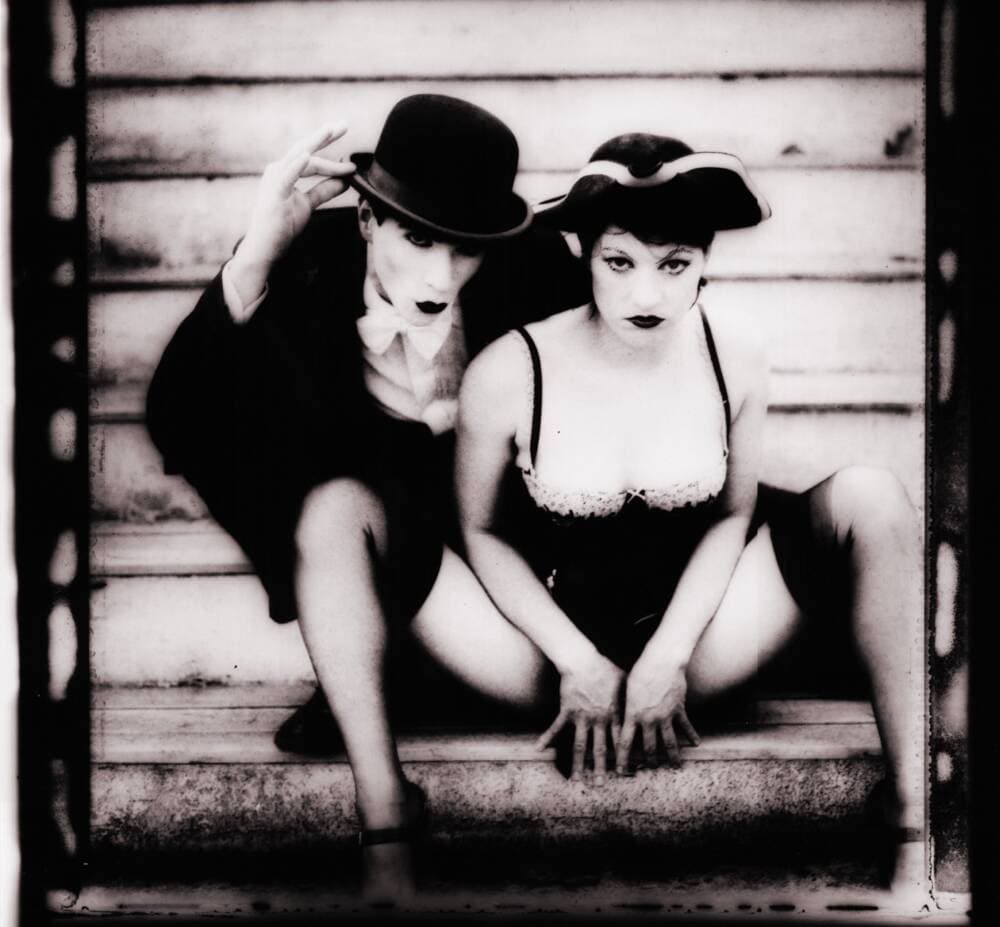Advertisement
Amanda Palmer on divorce, the Dresden Dolls and her solo career

“I was the punk-cabaret Taylor Swift of my time,” says Amanda Palmer, with a slight laugh. The singer-pianist — half of the Boston-formed Dresden Dolls as well as a solo artist — is on the phone from Bearsville, New York in the home once owned by Bob Dylan’s manager Albert Grossman.
“The first two Dresden Dolls albums have some really great breakup songs, but I feel a heartbreak on a much larger scale these days,” Palmer says. “My heartbreak at 25 was hyper-specific and localized around a couple of ex-boyfriends. But I have a child now and have circumnavigated the globe 20 times and have been through many relationships that have been heart-breaking, Neil included, but certainly not just Neil.”
Neil, of course, is the celebrated author Neil Gaiman. The couple was married in January 2011 and announced their divorce in November 2022. “It's been a slow and painful divorce season up here in the woods,” Palmer says, readying to address “what it means to synthesize pain into art for the new upcoming Dolls record. And, of course, I am a very emotional songwriter.”
"One of the most difficult things about this time in my life is not telling the story and being more of a mystery than people are used to."
Amanda Palmer
Palmer has been very self-revelatory — in song, in her 2009 photo book “Who Killed Amanda Palmer?” (with stories by Gaiman) and in interviews. Of the divorce, Palmer says, “One of the most difficult things about this time in my life is not telling the story and being more of a mystery than people are used to.” Part of her holding back, she adds, has to do with not doing any damage to the psyche of her 7-year-old son, Ash.
Before returning to the United States in June 2022, Palmer spent the previous three years in New Zealand, semi-isolated because of the pandemic. “I really cannot understate how mind-bending and eye-opening it was to be waylaid totally accidentally in a place that was not America,” she says. “Because when I returned to America, it was almost as if I could finally see it as an outsider. And this country is going through a pretty difficult moment.”
The Lexington-raised Palmer is about to relaunch herself with a solo show at the Wilbur Theatre on April 29, a day before her 47th birthday. A 12-date Dresden Dolls tour kicks off May 19 in Denver. There is no Boston date, but one is likely after the Dresden Dolls release their next album — “a really big show,” Palmer says.

“It’s a blurry line sometimes between who I am and who the Dresden Dolls are,” says Palmer, whose partner in the Dolls is drummer Brian Viglione. “Anyone who’s ever seen the Dresden Dolls understands it’s a band with two front people and seeing Amanda Palmer solo and seeing the Dresden Dolls as a band is an infinitely different experience. The material is different, the stage is different, the content is different. And the more I evolve as a solo artist and the more material I have, the more differentiated I become.”
When Palmer toured in 2019 in support of “There Will Be No Intermission,” her third solo album, she played three-and-half to four-hour-long shows, presentations that were about half music and half storytelling.
“It’s an ongoing conversation with a revolving door of human beings,” Palmer says, “but it was sort of like an endless memoir, an Amanda Palmer hangout where I used the show as a way to express what I may be feeling and thinking right now in song form.”
By contrast, a Dresden Dolls show — where the punk-cabaret tag was first applied in the early 2000s — is more raucous, less talky.
“They’re different sides of me and I enjoy both of them equally,” Palmer says. “It’s like asking someone if they enjoy an intimate dinner with their partner or a big wild dance party — you need both in your diet. I don’t feel the Dresden Dolls shows aren’t intimate — in fact, in some ways they’re more intimate in a guttural way, in using the power level of the Dresden Dolls and the noise level, I’m able to go places that I am not able emotionally during a solo show.”
Central themes of her 2019 show concerned reproductive rights and sexual violence and silence. “I gathered a lot of information that year touring the world,” she says, “and a lot of it was really painful to learn, really devastating. The biggest theme I took away was I don’t think the world understands the extent to which women suffer in silence. If I learned anything on that tour, it’s that these songs that I wrote about abortion, miscarriage, cancer and grief had a palpable effect. I knew that the music was helping them and helping me. No big mystery. That’s a copacetic relationship.”
"I'm sure my personal experiences are going to do a continual dance with the experiences of my community and worm their way into the music, but whatever album I make ... it can no longer be just about me."
Amanda Palmer
The Dresden Dolls have released three studio albums, an eponymous debut and then “Yes, Virginia” in 2006 and “No, Virginia” in 2008. After a long hiatus, she and Viglione planned to record another album in 2020. Then, the pandemic hit.
“I am drowning in a vat of unfinished material, which is not as terrible as it sounds,” Palmer says. “It’s a bracing swim. Speaking as one who goes on a cold plunge every day, I am very much into the bracing at the moment.”
Nevertheless, Palmer calls the work-in-process Dolls record, her “Moby-Dick.” “I have been working on this since 2015 but it didn’t happen for many times for many reasons, but the material never went away. I now have many iterations of my songwriting, but in this post-pandemic era, if we can call this post-pandemic, a lot that I wrote [then] does not feel relevant at this moment.
“Fundamentally, it changed the way I move through the world, my day, my decisions about my band. The record I’m going to put out is going to bear little resemblance to the one I would have put out then.”
If some of those songs are to survive and make it to record, Palmer says, they “need to be recontextualized or reconfigured or somehow Frankensteined for post-pandemic, post-divorce, post-New Zealand songwriter Amanda Palmer who has really been through the wringer and come out the other side beautifully mangled, but definitely not the person I was in 2019.”

Though there had been reports of trouble within the marriage going back to 2020, the Palmer-Gaiman divorce, announced jointly and diplomatically, certainly shook the alt-rock and literary worlds last year. While Palmer is certainly famous, Gaiman’s level of fame is in another stratum. She says that if you were to make a Venn diagram of their fan bases, there would be some, but not much, overlap.
Palmer says she’s sure the dual celebrity factor caused issues in their relationship at certain points, “but it’s hard to untangle any one thing from another. Once you open up that particular Pandora’s box you also have to beg the question: Why did someone like Neil or someone like me crave success so deeply? The noise and the static around any kind of success of celebrity can also be damaging to any normal relationship. I have found that is true in both the case of me and Neil.”
“I come back to the same theme,” Palmer says. “Neil and I have a whole lot in common but where we got in trouble is where we stopped having things in common and that was always a danger zone.”
What’s happened in her life will inevitably show up, to some degree, in song. “I’m sure my personal experiences are going to do a continual dance with the experiences of my community and worm their way into the music,” she says. “But whatever album I make with the Dresden Dolls or make [solo], it can no longer be just about me. I know too much; I’ve heard too many horror stories from too many women and [I want to] put them in the blender along with my own personal experiences. Next to a lot of the stories I’ve heard, mine had been a cakewalk.”
